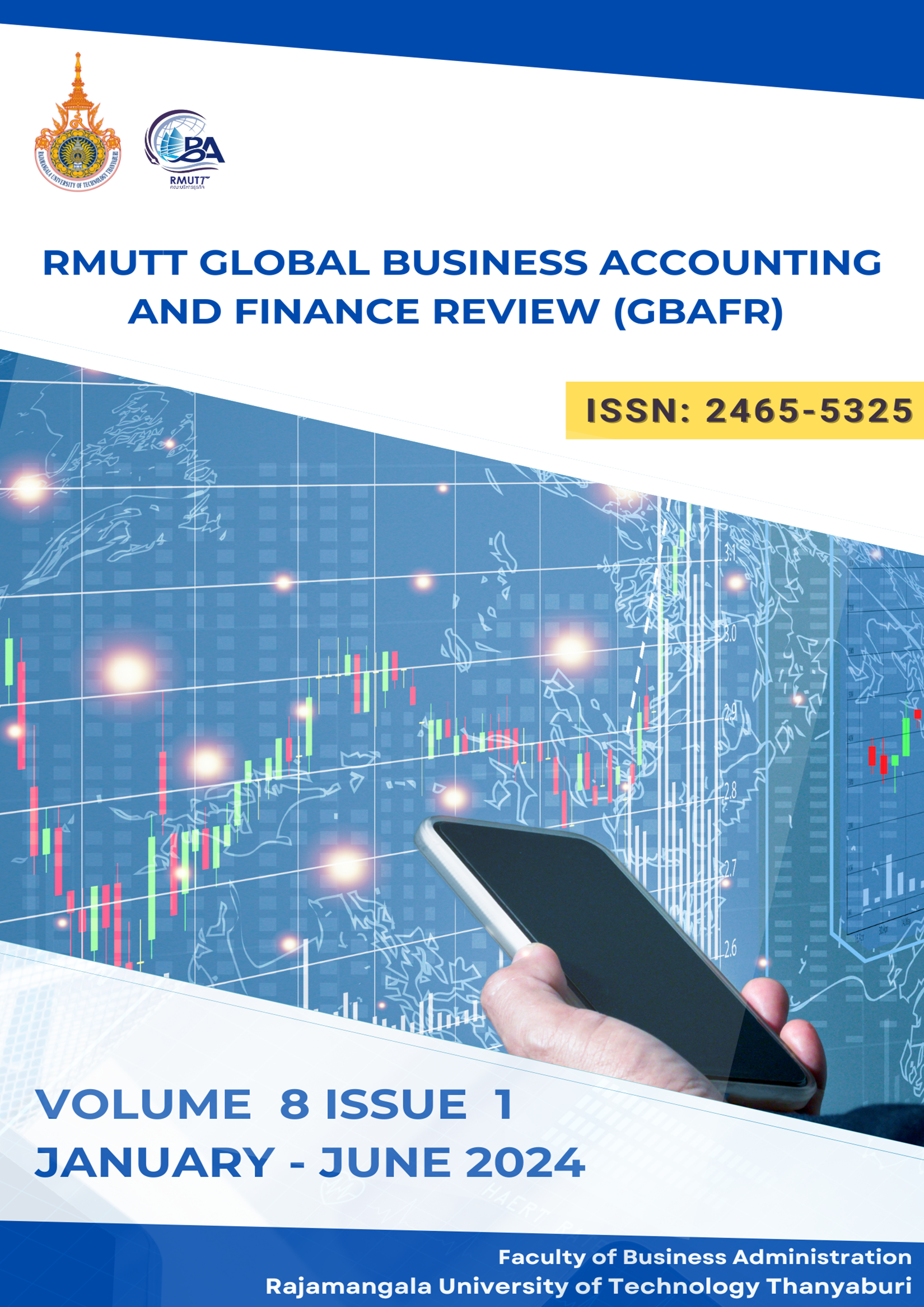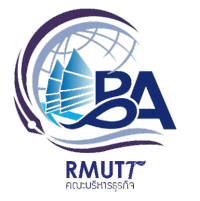SUSTAINABILITY IN SUPPLY CHAINS: STRATEGIES AND PRACTICES FOR A GREENER FUTURE
DOI:
https://doi.org/10.60101/gbafr.2024.273498Keywords:
Sustainability, Supply chains, Green practicesAbstract
Purpose – The purpose of this study is to investigate the critical importance of integrating sustainability practices into supply chain management. It aims to explore strategies and best practices that businesses can adopt to mitigate environmental challenges, reduce greenhouse gas emissions, and transition towards greener supply chains.
Implications – The integration of sustainability into supply chain management has far-reaching implications for businesses, the environment, and society. By adopting sustainable practices, organizations can enhance their brand reputation, increase customer loyalty, achieve cost savings, improve risk management, foster innovation, and gain a competitive advantage. Additionally, the adoption of green supply chain practices contributes to environmental conservation, resource efficiency, and the mitigation of climate change impacts.
Originality/Value – This study offers a comprehensive analysis of sustainable supply chain practices, with a particular focus on Thailand's manufacturing sector. It provides valuable insights into the challenges and opportunities associated with implementing sustainability strategies across various industries. The research highlights best practices, case studies, and recommendations tailored to the Thai context, enabling businesses to navigate the transition towards greener supply chains effectively. Furthermore, the study emphasizes the significance of Thailand's sustainability efforts in influencing global standards and positioning the nation as a leader in responsible manufacturing practices.
References
Ajmal, M. M., Khan, M., Hussain, M., & Helo, P. (2018). Conceptualizing and incorporating social sustainability in the business world. International Journal of Sustainable Development & World Ecology, 25(4), 327-339.
Al-Shetwi, A. Q. (2022). Sustainable development of renewable energy integrated power sector: Trends, environmental impacts, and recent challenges. Science of The Total Environment, 822, 153645.
Al Mashalah, H., Hassini, E., Gunasekaran, A., & Bhatt, D. (2022). The impact of digital transformation on supply chains through e-commerce: Literature review and a conceptual framework. Transportation Research Part E: Logistics and Transportation Review, 165, 102837.
Awasthi, A. K., Cheela, V. S., D’Adamo, I., Iacovidou, E., Islam, M. R., Johnson, M., Miller, T. R., Parajuly, K., Parchomenko, A., & Radhakrishan, L. (2021). Zero waste approach towards a sustainable waste management. Resources, Environment and Sustainability, 3, 100014.
Besta, P., Janovská, K., Martínek, Z., Švecová, E., & Drastich, A. (2022). Negative Environmental Impacts of Production Technologies. Rocznik Ochrona Środowiska, 24, 307-325. https://doi.org/10.54740/ros.2022.022
Bratt, C., Sroufe, R., & Broman, G. (2021). Implementing strategic sustainable supply chain management. Sustainability, 13(15), 8132.
Bravi, L., Santos, G., Pagano, A., & Murmura, F. (2020). Environmental management system according to ISO 14001: 2015 as a driver to sustainable development. Corporate Social Responsibility and Environmental Management, 27(6), 2599-2614.
Brooks, B., Hays, K., & Milner, L. (2019). Plastics recycling. PET and Europe lead the way. S&P Global Platts.
Brun, A., Karaosman, H., & Barresi, T. (2020). Supply chain collaboration for transparency. Sustainability, 12(11), 4429.
Carlsen, L., & Bruggemann, R. (2022). The 17 United Nations’ sustainable development goals: A status by 2020. International Journal of Sustainable Development & World Ecology, 29(3), 219-229.
Centobelli, P., Cerchione, R., Ertz, M., & Oropallo, E. (2023). What we learn is what we earn from sustainable and circular construction. Journal of Cleaner Production, 382, 135183.
Correia, E., Garrido, S., & Carvalho, H. (2024). Sustainability supply chain practices: proposal for a framework. The International Journal of Logistics Management, 35(1), 187-209. https://doi.org/10.1108/IJLM-05-2022-0231
Cucchiella, F., D’Adamo, I., & Gastaldi, M. (2017). Sustainable waste management: Waste to energy plant as an alternative to landfill. Energy Conversion and Management, 131, 18-31.
Denkena, B., Wichmann, M., Kettelmann, S., Matthies, J., & Reuter, L. (2022). Ecological planning of manufacturing process chains. Sustainability, 14(5), 2681.
Elsaid, S., & Aghezzaf, E.-H. (2015). A framework for sustainable waste management: challenges and opportunities. Management Research Review, 38(10), 1086-1097.
Etse, D., McMurray, A., & Muenjohn, N. (2023). Sustainable procurement practice: The effect of procurement officers’ perceptions. Journal of business ethics, 184(2), 525-548.
Favi, C., Marconi, M., Germani, M., & Mandolini, M. (2019). A design for disassembly tool oriented to mechatronic product de-manufacturing and recycling. Advanced Engineering Informatics, 39, 62-79.
Ghazali, N. A., Lafortune, E., Latiff, M. K. M., Limjaroenrat, P., & Whitesides, E. (2011). Thailand automotive cluster. Institute for strategy and competitiveness.
Ghomi, V., Gligor, D., Shokoohyar, S., Alikhani, R., & Ghazi Nezami, F. (2023). An optimization model for collaborative logistics among carriers in vehicle routing problems with cross-docking. The International Journal of Logistics Management, 34(6), 1700-1735.
Giuffrida, M., & Mangiaracina, R. (2020). Green practices for global supply chains in diverse industrial, geographical, and technological settings: a literature review and research agenda. Sustainability, 12(23), 10151.
Gonzalez, C., Agrawal, V., Johansen, D., & Hooker, R. (2022). Green supply chain practices: The role of institutional pressure, market orientation, and managerial commitment. Cleaner Logistics and Supply Chain, 5, 100067.
Grant, D. B., Wong, C. Y., & Trautrims, A. (2017). Sustainable logistics and supply chain management: principles and practices for sustainable operations and management. Kogan Page Publishers.
Hahn, T., Figge, F., Pinkse, J., & Preuss, L. (2018). A paradox perspective on corporate sustainability: Descriptive, instrumental, and normative aspects. Journal of business ethics, 148, 235-248.
Hiep, P. M., Tien, N. H., Dana, L. P., Kuc, B. R., Van Tien, N., & Ha, V. X. (2021). Enhancing social responsibility and sustainability in real estate industry. Turkish Journal of Computer and Mathematics Education (TURCOMAT), 12(14), 4999-5013.
Homayouni, Z., Pishvaee, M. S., Jahani, H., & Ivanov, D. (2023). A robust-heuristic optimization approach to a green supply chain design with consideration of assorted vehicle types and carbon policies under uncertainty. Annals of Operations Research, 324(1), 395-435.
Huang, J., Xie, D., Qiu, Y., Wang, J., & Song, J. (2023). Green supply chain management: a renewable energy planning and dynamic inventory operations for perishable products. International Journal of Production Research, 1-28. https://doi.org/10.1080/00207543.2023.2220047
Ibrahim, I. D., Hamam, Y., Sadiku, E. R., Ndambuki, J. M., Kupolati, W. K., Jamiru, T., Eze, A. A., & Snyman, J. (2022). Need for sustainable packaging: an overview. Polymers, 14(20), 4430.
Ingrao, C., Arcidiacono, C., Siracusa, V., Niero, M., & Traverso, M. (2021). Life cycle sustainability analysis of resource recovery from waste management systems in a circular economy perspective Key Findings from This Special Issue. Resources, 10(4), 32.
Islam, M. R., Mahmud, M. R., & Pritom, R. M. (2020). Transportation scheduling optimization by a collaborative strategy in supply chain management with TPL using chemical reaction optimization. Neural Computing and Applications, 32, 3649-3674.
Jæger, B., Menebo, M. M., & Upadhyay, A. (2021). Identification of environmental supply chain bottlenecks: a case study of the Ethiopian healthcare supply chain. Management of Environmental Quality: An International Journal, 32(6), 1233-1254.
Khalid, R. U., Jajja, M. S. S., Beske-Janssen, P., & Neutzling, D. M. (2022). Impact of technology on supply chains in emerging and informal markets. The international journal of logistics management, 33(3), 997-1000.
Kiani Mavi, R., Kiani Mavi, N., Olaru, D., Biermann, S., & Chi, S. (2022). Innovations in freight transport: A systematic literature evaluation and COVID implications. The International Journal of Logistics Management, 33(4), 1157-1195.
Kouhizadeh, M., Saberi, S., & Sarkis, J. (2021). Blockchain technology and the sustainable supply chain: Theoretically exploring adoption barriers. International journal of production economics, 231, 107831.
Kozik, N. (2020). Sustainable packaging as a tool for global sustainable development. SHS web of conferences.
Krämer, S., & Engell, S. (2018). Energy and Resource Efficiency in the Process Industries. Resource Efficiency of Processing Plants: Monitoring and Improvement, 3-18. https://doi.org/10.1002/9783527804153.ch1
Kshetri, N. (2021). Blockchain and sustainable supply chain management in developing countries. International Journal of Information Management, 60, 102376.
Le Guen, M., Mosca, L., Perera, A. T. D., Coccolo, S., Mohajeri, N., & Scartezzini, J.-L. (2018). Improving the energy sustainability of a Swiss village through building renovation and renewable energy integration. Energy and Buildings, 158, 906-923.
Leal Filho, W., Salvia, A. L., Vasconcelos, C. R. P., Anholon, R., Rampasso, I. S., Eustachio, J. H. P. P., Liakh, O., Dinis, M. A. P., Olpoc, R. C., & Bandanaa, J. (2022). Barriers to institutional social sustainability. Sustainability Science, 17(6), 2615-2630.
Manivong, P., & Bourgois, E. (2017). White paper: Thai sugarcane sector and sustainability. FairAgora https://www. bonsucro. com/white-paperthai-sugarcane-industry-sustainability-released.
Manomaivibool, P., & Vassanadumrongdee, S. (2011). Extended producer responsibility in Thailand: Prospects for policies on waste electrical and electronic equipment. Journal of Industrial Ecology, 15(2), 185-205.
Markovic, S., Bagherzadeh, M., Barkemeyer, R., & Samara, G. (2023). Pursuing innovative solutions to sustainability problems through openness: A future research agenda. Business ethics, the environment & responsibility, 32(2), 415-418.
Mason, M. (2020). Transparency, accountability and empowerment in sustainability governance: a conceptual review. Journal of Environmental Policy & Planning, 22(1), 98-111.
Miah, J., Griffiths, A., McNeill, R., Poonaji, I., Martin, R., Morse, S., Yang, A., & Sadhukhan, J. (2015). Creating an environmentally sustainable food factory: A case study of the Lighthouse project at Nestlé. Procedia Cirp, 26, 229-234.
Moxnes, E. (2023). Challenges for sustainability: misperceptions and misleading advice. System Dynamics Review, 39(3), 185-206.
Murphy, P. E., & Murphy, C. E. (2018). Sustainable living: unilever. Progressive business models: Creating sustainable and pro-social enterprise, 263-286.
Nelson, J., & Grayson, D. (2017). World business council for sustainable development (WBCSD). In Corporate responsibility coalitions (pp. 300-317). Routledge.
Neves, L. (2018). GeSI. Innovation Management and Corporate Social Responsibility. Social Responsibility as Competitive Advantage. Springer.
Nozari, H., Szmelter-Jarosz, A., & Ghahremani-Nahr, J. (2022). Analysis of the challenges of artificial intelligence of things (AIoT) for the smart supply chain (case study: FMCG industries). Sensors, 22(8), 2931.
O’Rourke, D., & Strand, R. (2017). Patagonia: Driving sustainable innovation by embracing tensions. California Management Review, 60(1), 102-125.
Oyedijo, A., Kusi-Sarpong, S., Mubarik, M. S., Khan, S. A., & Utulu, K. (2024). Multi-tier sustainable supply chain management: a case study of a global food retailer. Supply Chain Management: An International Journal, 29(1), 68-97.
Palmié, M., Miehé, L., Mair, J., & Wincent, J. (2024). Valuation entrepreneurship through product‐design and blame‐avoidance strategies: How Tesla managed to change the public perception of sustainable innovations. Journal of Product Innovation Management, 41, 644-676.
Patel, A. R., Vyas, D. R., Markana, A., & Jayaraman, R. (2022). A conceptual model for integrating sustainable supply chain, electric vehicles, and renewable energy sources. Sustainability, 14(21), 14484.
Petera, P., & Wagner, J. (2015). Global reporting initiative (GRI) and its reflections in the literature. European Financial and Accounting Journal, 10(2), 13-32.
Piccinno, F., Hischier, R., Seeger, S., & Som, C. (2018). Eco-efficient process improvement at the early development stage: identifying environmental and economic process hotspots for synergetic improvement potential. Environmental science & technology, 52(10), 5959-5967.
Poldner, K. (2017). Zigzag or interlock?: The case of the Sustainable Apparel Coalition. In Sustainability in Fashion and Textiles (pp. 277-293). Routledge.
Politis, Y., & Grigoroudis, E. (2022). Incorporating the sustainability concept in the major business excellence models. Sustainability, 14(13), 8175.
Rabbani, M., Navazi, F., Farrokhi-Asl, H., & Balali, M. (2018). A sustainable transportation-location-routing problem with soft time windows for distribution systems. Uncertain Supply Chain Management, 6(3), 229-254.
Saberi, S., Kouhizadeh, M., Sarkis, J., & Shen, L. (2019). Blockchain technology and its relationships to sustainable supply chain management. International Journal of Production Research, 57(7), 2117-2135.
Sanders, N. R., Boone, T., Ganeshan, R., & Wood, J. D. (2019). Sustainable supply chains in the age of AI and digitization: research challenges and opportunities. Journal of Business logistics, 40(3), 229-240.
Sarkis, J., Kouhizadeh, M., & Zhu, Q. S. (2021). Digitalization and the greening of supply chains. Industrial Management & Data Systems, 121(1), 65-85.
Sarwar, A., Zafar, A., Hamza, M., & Qadir, A. (2021). The effect of green supply chain practices on firm sustainability performance: Evidence from Pakistan. Uncertain Supply Chain Management, 9(1), 31-38.
Sassanelli, C., & Terzi, S. (2023). Circular Economy and Sustainable Business Performance Management. Sustainability, 15(11), 8619.
Schiller, P. L., & Kenworthy, J. (2017). An introduction to sustainable transportation: Policy, planning and implementation. Routledge.
Schillmann, C. (2020). Patagonia Inc. under a sustainability perspective. BUSI4549 Strategies for Corporate Social Responsibility. Nottingham University Business School China.
Sharma, M., Dhir, A., AlKatheeri, H., Khan, M., & Ajmal, M. M. (2023). Greening of supply chain to drive performance through logical integration of supply chain resources. Business Strategy and the Environment, 32(6), 3833-3847.
Shekarian, E., Ijadi, B., Zare, A., & Majava, J. (2022). Sustainable supply chain management: a comprehensive systematic review of industrial practices. Sustainability, 14(13), 7892.
Silvius, G., & Schipper, R. (2019). Planning project stakeholder engagement from a sustainable development perspective. Administrative Sciences, 9(2), 46.
Siracusa, V., & Rosa, M. D. (2018). Sustainable packaging. In Sustainable food systems from agriculture to industry (pp. 275-307). Elsevier.
Sutawidjaya, A., Nawangsari, L., & Nor, N. (2021). Life cycle assessment: Study linkage between environment supply chain management and sustainability of supply chain. Uncertain Supply Chain Management, 9(1), 179-186.
Torabizadeh, M., Yusof, N. M., Ma’aram, A., & Shaharoun, A. M. (2020). Identifying sustainable warehouse management system indicators and proposing new weighting method. Journal of Cleaner Production, 248, 119190.
Vezzoli, C. (2014). The “material” side of design for sustainability. In Materials Experience (pp. 105-121). Elsevier.
Visvizi, A. (2022). Artificial intelligence (AI) and sustainable development goals (SDGs): exploring the impact of AI on politics and society. Sustainability, 14(3), 1730.
Wahab, S. N., Safian, S. S. S., Othman, N., & Azhar, N. (2021). Motivations to implement sustainable warehouse management: a literature review. International Journal of Accounting, 6(33), 117-124.
Wangsa, I. D., Vanany, I., & Siswanto, N. (2022). Issues in sustainable supply chain’s futuristic technologies: a bibliometric and research trend analysis. Environmental Science and Pollution Research, 29(16), 22885-22912.
Waqas, M., Honggang, X., Ahmad, N., Khan, S. A. R., Ullah, Z., & Iqbal, M. (2022). Triggering sustainable firm performance, supply chain competitive advantage, and green innovation through lean, green, and agile supply chain practices. Environmental Science and Pollution Research, 29(12), 1-22.
Xin, Y., Zheng, K., Zhou, Y., Han, Y., Tadikamalla, P., & Fan, Q. (2022). Logistics efficiency under carbon constraints based on a super SBM model with undesirable output: Empirical evidence from China’s logistics industry. Sustainability, 14(9), 5142.
Yahdiyani, M. W. H., Safari, A., & Megawati, L. R. (2023). Sustainability Business Model Tesla Motors. Proceedings of the Business Innovation and Engineering Conference (BIEC 2022).
Yang, K., Duan, T., Feng, J., & Mishra, A. R. (2022). Internet of things challenges of sustainable supply chain management in the manufacturing sector using an integrated q-Rung Orthopair Fuzzy-CRITIC-VIKOR method. Journal of Enterprise Information Management, 35(4/5), 1011-1039.
Zailani, S., Jeyaraman, K., Vengadasan, G., & Premkumar, R. (2012). Sustainable supply chain management (SSCM) in Malaysia: A survey. International journal of production economics, 140(1), 330-340.
Zarte, M., Pechmann, A., & Nunes, I. L. (2022). Problems, Needs, and Challenges of a Sustainability-Based Production Planning. Sustainability, 14(7), 4092.
Zoriehhabib, M., Rostamy-Malkhalifeh, M., & Hosseinzadeh Lotfi, F. (2021). Efficiency measurement of the environmental systems: a two-stage structure considering undesirable outputs. Management of Environmental Quality: An International Journal, 32(2), 227-242.
Zouari, D., Ruel, S., & Viale, L. (2021). Does digitalising the supply chain contribute to its resilience?. International Journal of Physical Distribution & Logistics Management, 51(2), 149-180.
Downloads
Published
How to Cite
Issue
Section
License
Copyright (c) 2024 Faculty of Business Administration, Rajamangala University of Technology Thanyaburi

This work is licensed under a Creative Commons Attribution-NonCommercial-NoDerivatives 4.0 International License.









